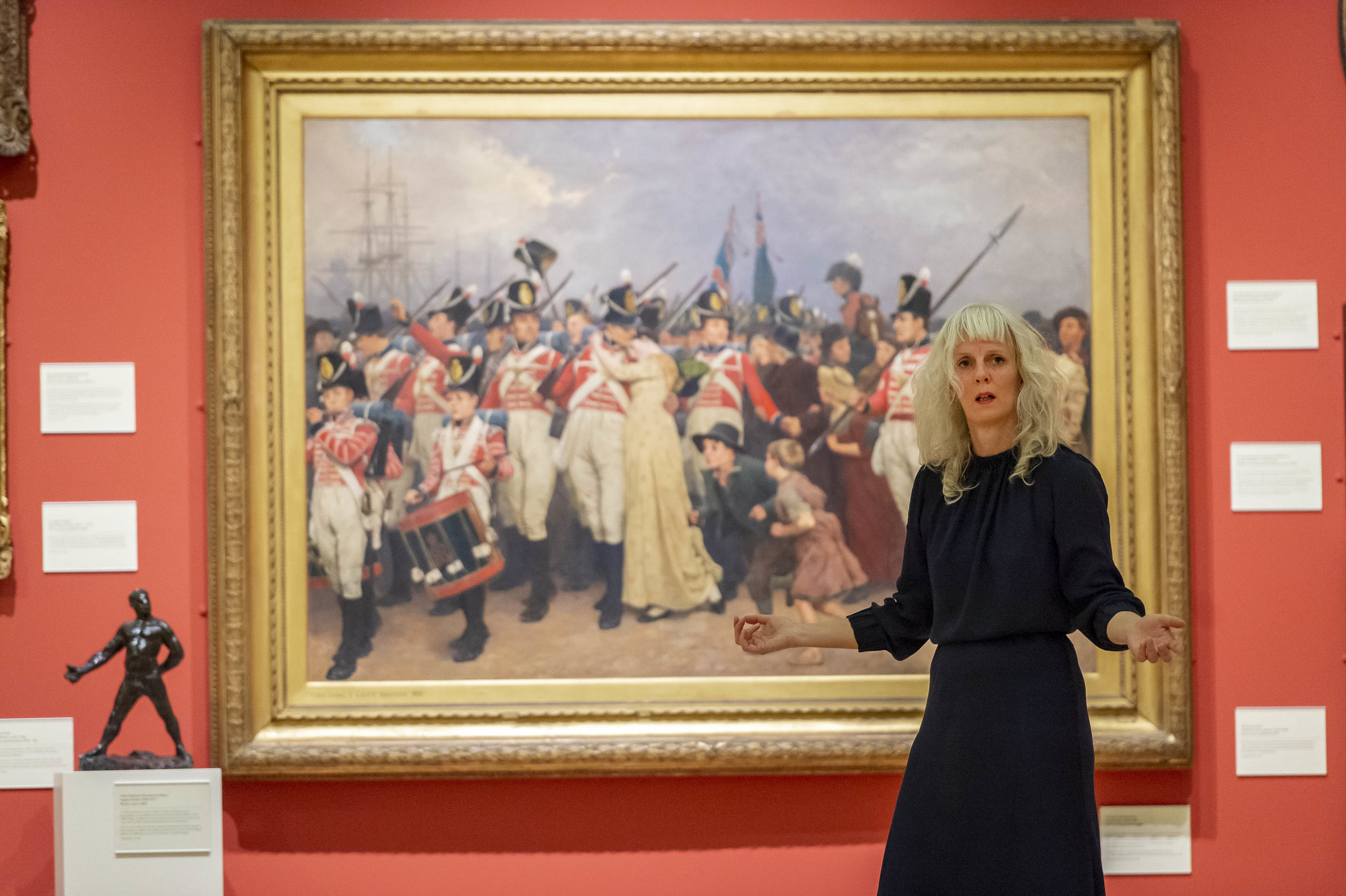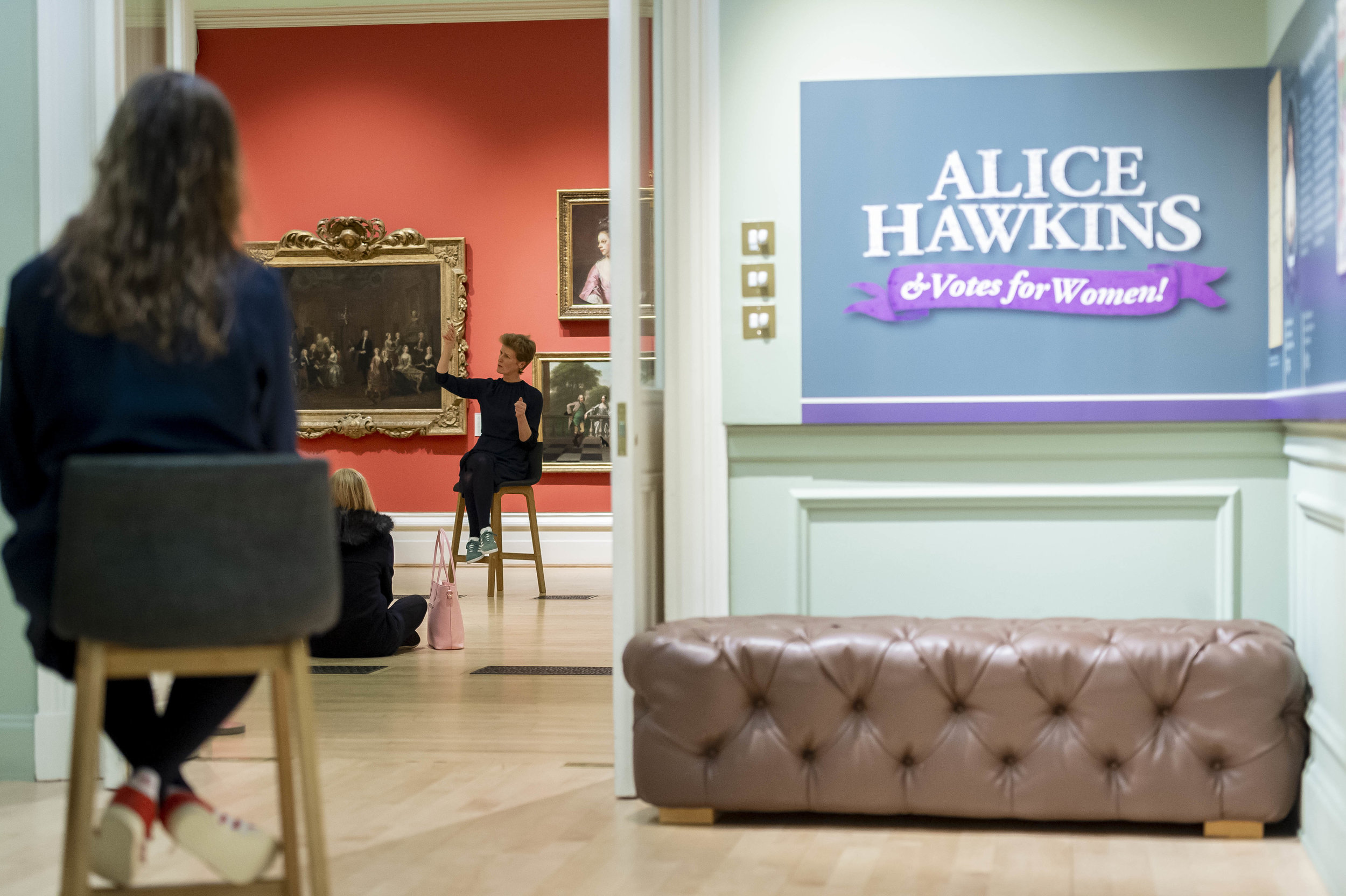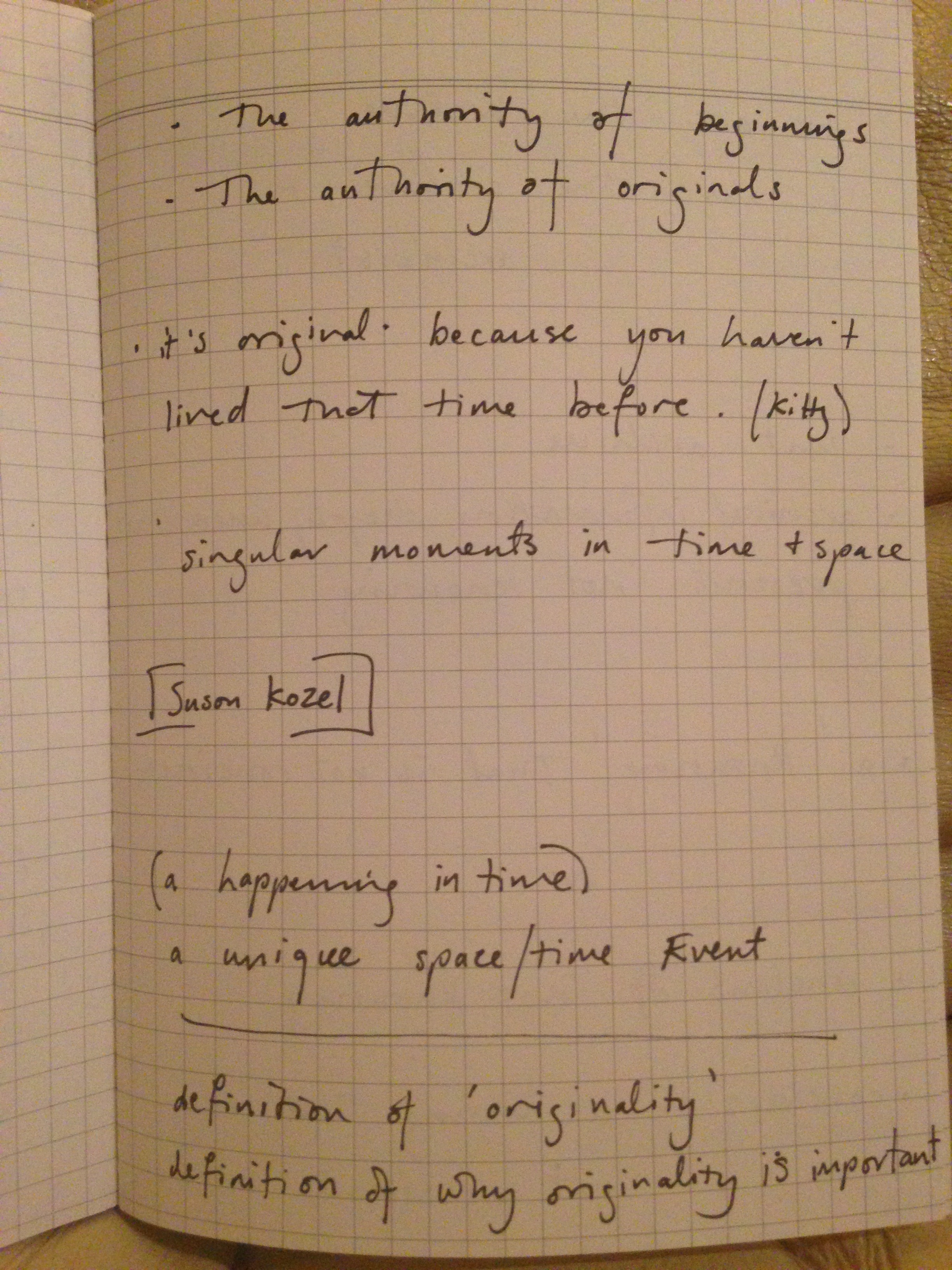Please Do Touch (phase two)
Please Do Touch continues the journey that Sally, Rachel and Lisa embarked upon in Body of Knowledge - the first phase of this project. Please Do Touch is a specially commissioned performance in which Sally, Rachel and Lisa inhabit Leicester’s New Walk Museum and Art Gallery. Drawing upon past experiences, movement and conversation, they consider how embodied memory can be as resonant and as rich in history as the exhibits on display in the galleries. A series of evolving performance encounters takes place between the performers and audience throughout the different gallery spaces. This new work aims to provoke the personal memories of the audience as the performers recall and share their own histories through movement, spoken and sung choreographic responses.
Performance of Please Do Touch | Saturday 1st and Sunday 2nd December 2018
Leicester New Walk Museum and Art Gallery
URL for performance video HERE
Awaiting copyright clearance for music
Teaser video for Please Do Touch | Saturday 1st and Sunday 2nd December 2018
Leicester New Walk Museum and Art Gallery
Scores from Please Do Touch
SHOW SHOTS (Photographer: Jason Senior at redpix)
Body of Knowledge (phase one)
Performance at NottDance 2017 | Sunday 12th March 2017
Nottingham Castle
This is the last public event in the 2016-2017 Body of Knowledge project. Sally, Lisa and Rachel present some of the dancing, speaking and writing practices they have been working with in order to unearth, understand and use their personal archives to generate new performance.
Conversation at NottDance 2017 | Sunday 12th March 2017
Nottingham Castle
Post-sharing conversation about the project and outcomes, chaired by Betsy Gregory.
Performance at InDialogue | Thursday 1st December 2016
Nottingham Contemporary
Handle With Care: one
By Sally Doughty and Rachel Krische
Digging deep into their personal archives, Sally Doughty, Lisa Kendall and Rachel Krische continue a four month process of collecting, collating and cataloguing their individual embodied collections. This endeavor to amass materials and memories in the moment of performance demands that the personal becomes public; the private becomes shared; connections are remembered, made and lost. They consider how their fragmented past(s) can be dragged into their present(s) to generate new understanding and opportunities for performance making, and in doing so, they invite the audience to re/consider their individual yet interwoven, personal archives.
Please forward on to 5:59:40 for the start of the performance.
Handle with care: two
Sally Doughty and Rachel Krische in conversation with Stuart Allen about the Body of Knowledge research project, approaches they are taking and findings so far.
Please forward on to 12.22mins for the start of the conversation.
Performative Presentation at Thinking Dance: Questioning the Contemporary conference | 16 October 2015
Leeds Beckett University
Hourglass: Archive as Muse, by Sally Doughty
The presentation focuses on Sally's commission by Dance4 to develop an improvised performance Hourglass (2015) in response to artefacts from Robert Wilson’s opera Einstein on the Beach (1976), exhibited at Backlit Gallery, Nottingham. Working with artefacts that have their own history and narrative can suggest a particular kind of responsivity that has the potential to mirror their original purpose. The challenge here was to create meaning anew in response to an original choreographic score by Lucinda Childs, other exhibits and the site itself.
Through the process of making and performing Hourglass, questions surfaced for the author around how the performance might sustain itself beyond the duration of the exhibition and access to the site.
Treating Hourglass as an archive and referring to Dancing in the Gallery and Museum (Wookey 2015), Sally proposed to recycle Hourglass post-exhibition and reflect upon the process of doing so. Innovative modes of making, including the recycling of performance scores hand-drawn during Hourglass will instigate the design of the creative process from which new material and meaning arises, and which avoids the trap of either directly replicating the archive that is Hourglass or the initial source material: the opera.







































































